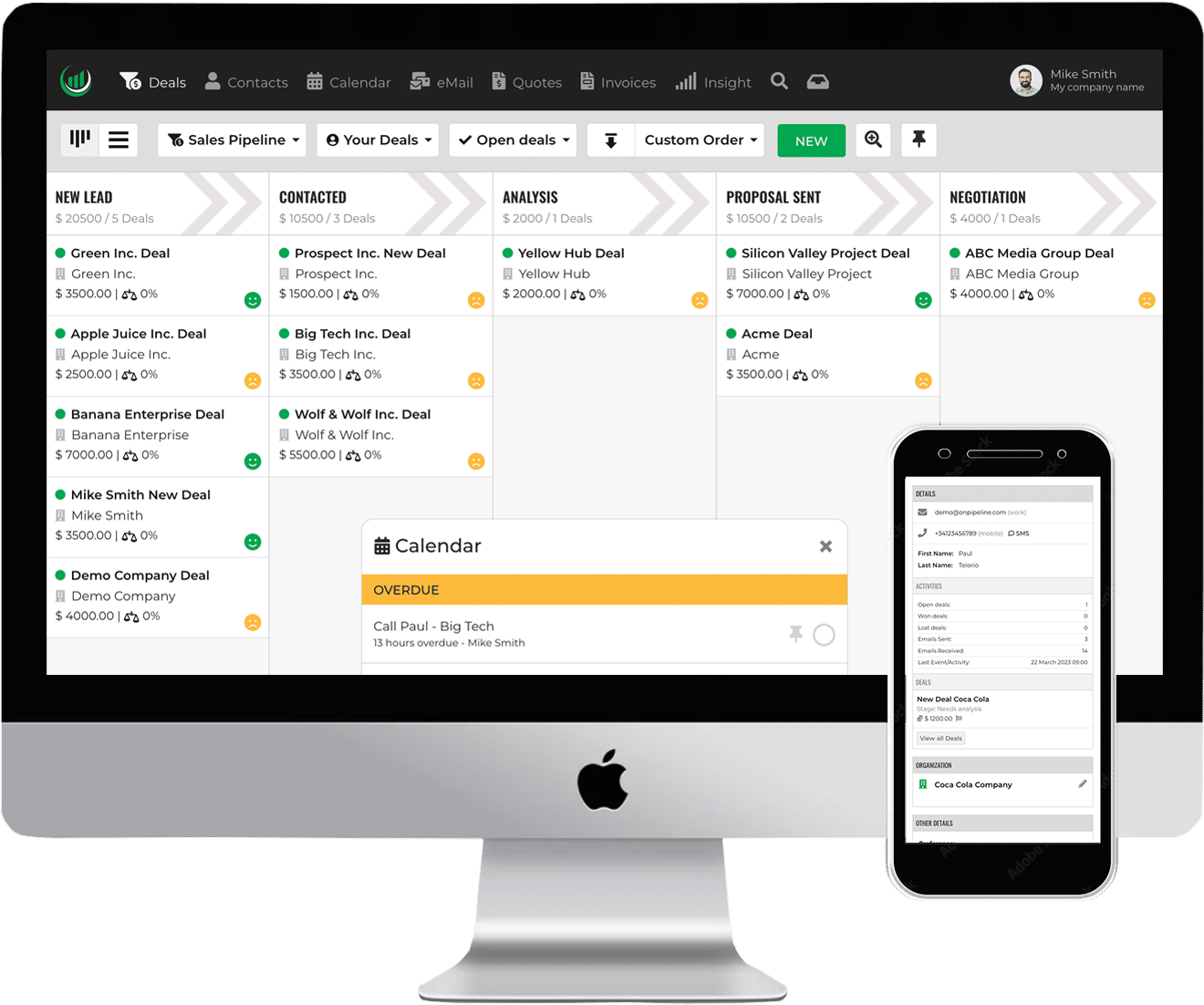Marketing is the fuel for sales
With marketing you establish basic information such as who you are, what you offer and the added value you offer to customers. Marketing activities are oriented towards brand awareness and loyalty.
The sales process focuses on collecting data and providing additional information, as well as answering any questions. You focus on custom solutions and presentations to get leads to convert.
Although marketing may also focus on sales as a business goal, its main focus is on promoting the company and products / services. Marketing helps the sales team achieve sales budgets.
Sales strategies
Sales strategies focus on direct contact and connections with potential customers. You use strategies like phone calls, events (often with the help of the marketing team) and networking to try to engage potential customers and get them to convert (Outbound Strategies). Tips for selling to anyone
Marketing strategies, on the other hand, focus on getting potential customers to contact you (generate leads). Marketing uses advertising, communication, events and promotions to get potential customers to contact the company (Inbound Strategies).
Focus on sales or marketing?
You shouldn’t even ask yourself this question because, regardless of who in your company is in charge of marketing and how many resources are allocated, marketing is as fundamental as sales.
Marketing is like the starter engine for sales as it supports the process of acquiring potential customers, while the sales team transforms leads into customers. It’s hard to have one without the other.
The resources to be allocated to one or the other activity depend on the industry and on how the company is organized.
A strong sales team might be able to sell without marketing support in all its aspects (this doesn’t mean they can do it without any marketing support). But imagine if the sales team had the opportunity to work on inbound contacts. This would give more opportunities to sell and therefore increase the turnover.
But be careful not to fall into the trap of thinking that marketing is somehow superior to sales.
Roles of marketing in sales
Market position
To help you have a consistent sales strategy, you need to establish your position in your market. What do you offer?
It is helpful to establish this information so that your sales team delivers a consistent message about your products or services. It helps you establish your brand identity and identify what makes you unique and different from the competition.
When you compare ads from large companies, you can see how they position themselves in the market and what they choose to focus on in order to acquire customers on different levers.
Prices
The definition of the price is a very important activity that is carried out by marketing, as a result of a market research.
Choosing a price depends on several factors and not just the cost of production. You will need to analyze prices from a competitive point of view and compare products on the market.
Highlighting the strengths and added value of our product is essential to convince customers to buy. If your sales team provides pricing without properly describing the features, the customer may end up buying from competitor. Always check if teams have the most accurate information to ensure everything runs smoothly.
The role of CRM in marketing
Some reduce CRM to the management of data concerning customers with the ultimate aim of maximizing their trust in the company. But CRM has a broader scope and meaning.
CRM is the set of activities designed to increase and retain customers. Information regarding customers and the right data organization are basic.
An effective Sales CRM, in fact, will take care of successfully managing the various relationships with customers and consequently will allow you to implement the marketing campaigns that are most appropriate. In the absence of a valid system to manage customer relations, you could never count on the loyalty process, which is essential to keep your company at the peak.
CRM will help you know the future value of a customer and which customers are the most loyal and profitable. These are not insignificant aspects, they help you to meet the expectations of your customers!
The best CRM solution
Finding the best CRM solution for your business depends on the features and flexibility you expect.
It is up to you to consider the features that may be relevant to your business, exclude those that are not, and select a tool accordingly.
Here is a list of the main factors to help you select the best solution:
- Ease of use – Customer relationship management is as important as time management. A good CRM program should be able to have a good learning curve, especially if your team is using CRM software for the first time.
- Flexibility – Another thing to consider are the features you are looking for. Some companies, for example, use 1-2 users to manage customer relationships, but others might have multiple users working on different aspects of building customer relationships.
- Reporting and Analytics – Look for CRM tools that deliver in-depth analytics and sales insights for your business. Feedback and reporting are important for building strong, long-term relationships with your customers and closing more deals.



